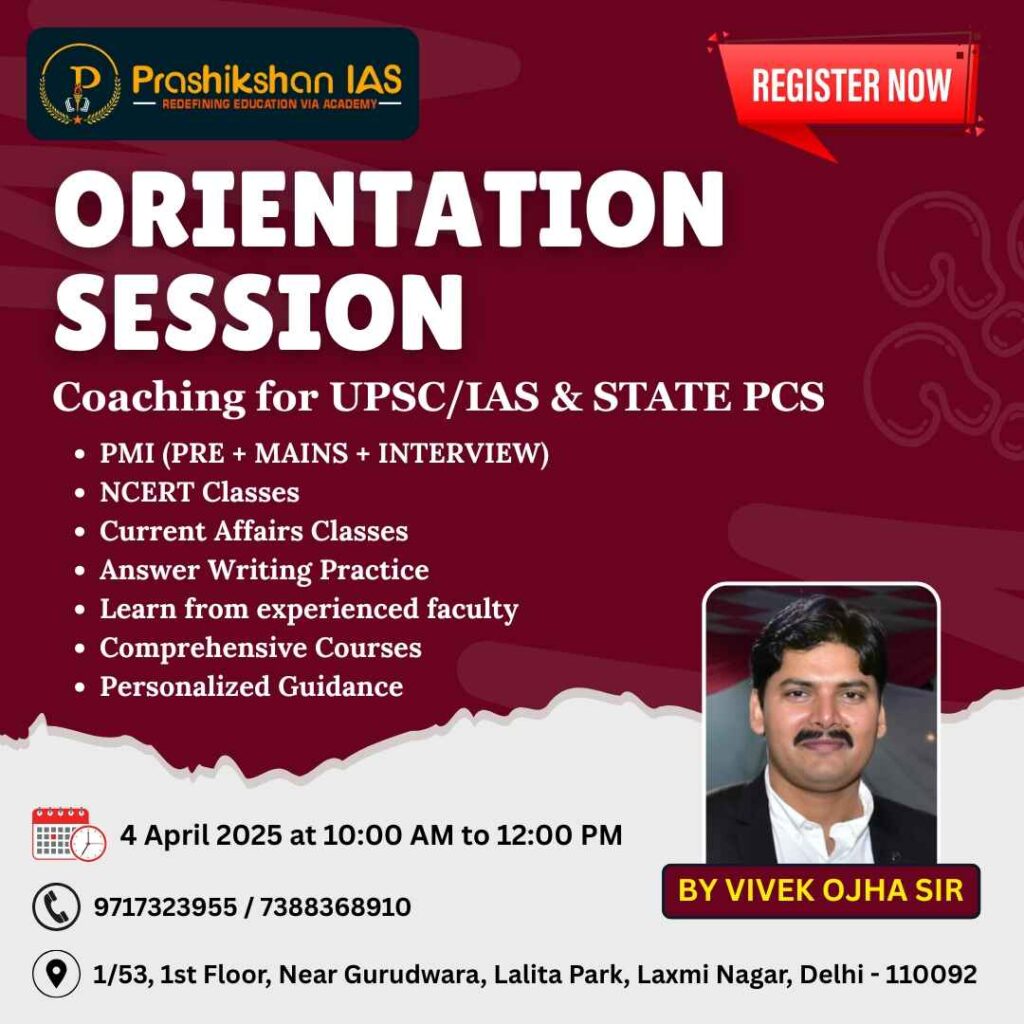
Submit the Form
| Duration | 2 hours |
| Total Questions | 80 |
| Maximum Marks | 200 |
| Negative Marking | One-third of the marks allotted to a question will be deducted for each incorrect answer. |
| Qualifying Nature | Candidates must score at least 33% (66 marks) to qualify, but these marks are not considered in the final merit list. |
| 1. Comprehension |
| Reading comprehension passages followed by questions to evaluate understanding. Both factual and inference-based questions are included. |
| 2. Interpersonal Skills, Including Communication Skills: |
| Questions on effective communication and understanding interpersonal dynamics. |
| 3. Logical Reasoning and Analytical Ability: |
| Questions involving patterns, series, syllogisms, puzzles, and logical deductions. |
| 4. Decision-Making and Problem-Solving: |
| Ethical dilemmas and real-life scenarios where candidates must select the most appropriate course of action. |
| 5. General Mental Ability: |
| Quantitative aptitude, arithmetic, and basic mathematical skills such as percentages, ratios, and probability. |
| 6. Basic Numeracy (Class X Level): |
| Numbers and their relations, orders of magnitude, data interpretation (charts, graphs, tables). |
| 7. Data Interpretation and Sufficiency: |
| Understanding data presented in graphs and tables and answering questions based on them. |
| 1. Comprehension: |
| Develop a habit of reading newspapers, editorials, and novels to improve reading speed and comprehension. Practice solving previous years’ CSAT comprehension questions to identify patterns and frequently asked question types. Focus on understanding the context and tone of the passage. |
| 2. Logical Reasoning and Analytical Ability: |
| Regularly practice questions from standard books such as R.S. Aggarwal’s A Modern Approach to Verbal & Non-Verbal Reasoning. Solve puzzles and Sudoku to sharpen logical reasoning skills. Analyze mistakes to understand the underlying concepts. |
| 3.Quantitative Aptitude and Basic Numeracy: |
| Brush up on basic mathematical concepts from Class X NCERT books. Memorize key formulas for topics like percentages, profit and loss, time and work, and probability. Use online resources and mock tests for additional practice. |
| 4. Decision-Making and Problem-Solving: |
| Focus on ethical dilemmas and practice solving real-life scenarios. Understand the rationale behind different decisions to enhance decision-making skills. |
| 5. Data Interpretation: |
| Regularly practice questions involving bar graphs, pie charts, and tables. Work on quickly interpreting data to save time during the exam. |
| 1. Comprehension |
| Word Power Made Easy by Norman Lewis Previous years’ UPSC CSAT papers |
| 2. Logical Reasoning and Analytical Ability: |
| Focus on strengthening basic concepts and practice mental calculations. Use shortcuts and tricks for faster calculations. |
| 3. Difficulty in Comprehension: |
| Improve vocabulary and reading habits. Summarize passages in your own words to enhance understanding. |
| 4. Overconfidence |
| Since the CSAT is qualifying in nature, candidates often neglect preparation. Ensure consistent practice to avoid surprises in the exam. |
| Comprehension | 5 hours |
| Logical Reasoning | 4 hours |
| Quantitative Aptitude | 5 hours |
| Decision-Making | 2 hours |
| Mock Tests and Analysis | 4 hours |
The CSAT, while qualifying in nature, plays a pivotal role in the UPSC Preliminary Examination. A systematic approach, consistent practice, and strategic preparation can help candidates comfortably clear the cutoff and focus on other stages of the Civil Services Examination. By mastering the skills tested in the CSAT, aspirants can not only achieve success in the preliminary round but also enhance their overall analytical and problem-solving abilities, which are crucial for a successful career in the civil services.
Frequently Asked Questions
Get in Touch
Talk to a Counselor
Would you like to start a learning with us?



